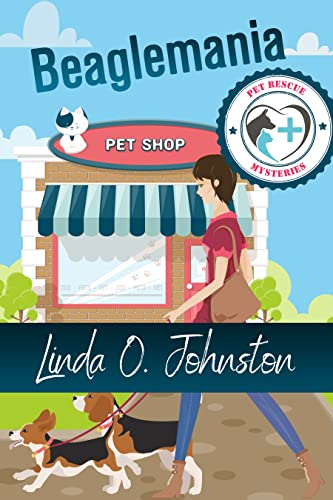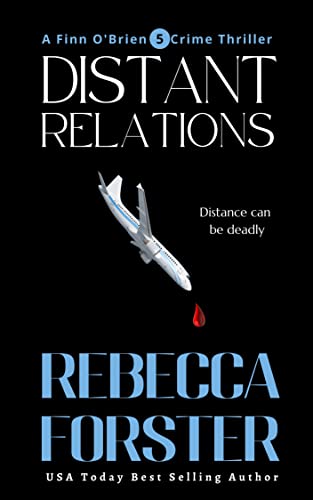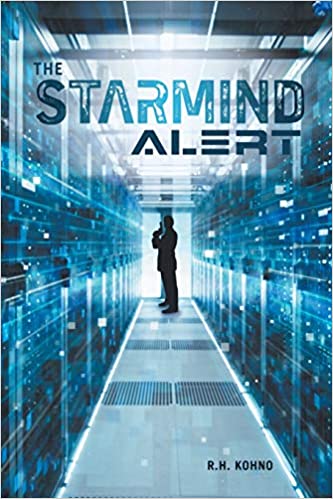Judging English by Carol L. Wright
March 13, 2024 by Bethlehem Writers Group in category From a Cabin in the Woods by Members of Bethlehem Writers Group tagged as American English, British English, English, Noah Webster
As readers of English, it’s fairly easy for us to tell whether an author is from the US or the UK simply because of word choices or spelling variations between the two countries. The reason for this is partly that, at the time of American independence, spelling in English was not completely standardized. How one spelled a word depended more on local convention than a universally accepted right or wrong spelling. Even Jane Austen misspelled (by today’s standards) a word in the title of one of her juvenile works: Love and Freindship.
When American spellings were standardized in the early 19th century, by the publication of Noah Webster’s first American dictionary, the author was intent on exerting a bit of linguistic independence from Britain. Thus, many American words no longer conform to “the King’s English.” In his original 1828 dictionary, Webster presented simplified American spelling to more closely reflect common pronunciation. This is why some US words have one less letter than used in the UK (e.g. color/colour, harbor/harbour, or valor/valour). Americans also drop letters at the end of some words (such as program/programme) or reverse letters (as with theater/theatre). We might want to ask Webster, however, why there is still an I in Austen’s troublesome word friendship, and why he didn’t reform the spellings of tough, though, and through.
Ordinarily, a reader will pass over these differences in spelling without any difficulty. They generally make little difference in how we would say these words, so why should we allow the spelling to give us pause? I have wondered, though, why, in Webster’s eagerness to simplify American spelling, he made a change to one specific word: judgment.
No matter which side of the Atlantic we’re on, English speakers know that we have two consonants that can produce two different sounds: C and G. The letter C can be pronounced as either a K (hard sound) or an S (soft sound); G can be a hard Guh or a soft J. The vowel that follows these consonants informs us as to whether to give the consonant a hard or a soft sound. If the letter is followed by an A, O, or U, it has a hard sound as in carrot, color, current, gable, golf, or guppy. If, however, the vowel that follows the consonant is an E or an I, the consonant should be pronounced with the soft sound, as in cereal, circle, genuine, giraffe . . . or judge.
So far so good, right?
But even Webster was inconsistent. When adding -ment to the word judge, he dropped the e, spelling it judgment. But this makes no sense. If we must drop the E when making judge into judgment, shouldn’t Americans instead spell it as judjment to match how we pronounce it? Or should we just say it jug-ment?
This English idiosyncrasy annoys me a bit. But then, while reading a British author, I noticed something that appeared to me to be an error. The author spelled judgment with an E after the G: judgement. Is it unpatriotic for an American to accuse Noah Webster of getting it wrong? Well, if so—hold on—so do the British! It turns out, in Britain, both spellings, judgment and judgement, are considered correct, but the preferred spelling is . . . judgment.
As many English-as-a-second-language students will tell you, if you’re looking for logic in a language, learn something else. (And we haven’t even mentioned usage in the British Commonwealth.)
The good news is that no matter which side of the Atlantic you come from, or which standard English you use, the 2024 Bethlehem Writers Roundtable Short Story Award competition will be happy to accept your story through our deadline of March 31, 2024. Stories of 2000 words or fewer—in English—are welcome. Our theme this year is “Holiday Stories” (holiday being defined as from US Thanksgiving through New Year’s Day). Winners receive cash and publication. To learn more, see the website at: https://bwgwritersroundtable.com/short-story-award-2/.
We hope you will consider entering your holiday stories and we look forward to reading them. And when we’re scoring them, we promise we will use our best judgement—er judgment!
A Few of Carol’s Publications
Happy Fall… Or is it autumn?!
September 28, 2020 by Alina K. Field in category Quarter Days by Alina K. Field, Writing tagged as American English, British English, historical fiction, Spelling and Punctuation, writing craftA Quarter Days’ Post
Greetings! I’m back for my quarterly post about various and sundry things related to writing historical fiction.
In my last post I talked about the delights of playing with words and creating Tom Swifties.
Today I’m talking about the difference between English and English, as in American vs. British.
Is it fall? Or is it autumn? More on that later.

What’s in your tool kit?
Words are the building blocks we writers and speakers use to create story. We start hoarding those blocks early, and the resulting vocabulary says much about our own personal settings—where we grew up, what our social milieu is, what our family is like.
A case in point—my grandkids’ first words. We waited with bated breath for each munchkin’s first spoken vocabulary word. I coached them repeatedly (and unsuccessfully) to say “mama”.
But for both of them the first word was… DOG! (Yes, we do love our dogs.)

Fledgling writers
are taught “write what you know”. I wonder why? It’s a lot more fun to step outside the known world. But it does lead to challenges.
The biggest challenge: You don’t know what you don’t know.
For a 21st century American like me trying to set a story in Georgian England, there are a million opportunities to err.
First there’s the issue of etymology. Was a word used during this story’s time period?
A couple of examples from a Regency first draft I was beta reading for a friend:
- Hooligan: a great word, right? Unfortunately it dates to the 1890s.
- Foyer: Sadly, this dates to 1859.
And a couple from my own first drafts:
- Merry Widow: as my editor pointed out, this phrase references Franz Lehar’s operetta’s English title from 1907. Just a tad later than the Regency!!!
- Shack: Not only is this a later word (1878) but it’s of American or Canadian origin.
Which brings up another potential pitfall for the fledgling Regency Romance author.
American vs. British
Americans and Brits may speak the same language, but we use different words.

I’m fortunate to work often with an editor in England, and so I’ve compiled my own list of Americanisms for my own pre-editing purging.
Some more examples:
This very funny post from a British writer complete with illustrations.
And a list of 60 American English words translated into British English.
Spelling and punctuation are different too.
Once, long ago, while reading one of Georgette Heyer’s books, I wondered why they kept writing “cosy” instead of “cozy”. Why had so many misspellings slipped past the editor?
The British spelling was different enough to make it a jarring read for this ignorant and unaware American who happens to be a good speller. Fortunately, I’m wise to them now.
There are also punctuation differences. Here’s a short post about some of those.
And a long one about spelling differences.
I don’t believe Regency readers will pillory an author over this issue, so I’ve settled on using American spelling and punctuation in my stories.
One might say, in this area at least, I’m writing what I know!
Do you suppose we’ll ever go “one-world” on the spelling and punctuation rules?
Happy fall (and autumn) to everyone, and I’ll be back in December!
Images credits: autumn leaves and dog are from Stencil (I’d happily claim that dog though!); image of words is from Wikimedia Commons.
2 0 Read more
Affiliate Links
A Slice of Orange is an affiliate with some of the booksellers listed on this website, including Barnes & Nobel, Books A Million, iBooks, Kobo, and Smashwords. This means A Slice of Orange may earn a small advertising fee from sales made through the links used on this website. There are reminders of these affiliate links on the pages for individual books.
Search A Slice of Orange
Find a Column
Archives
Featured Books
BEAGLEMANIA
Lauren Vancouver is the head of HotRescues, a no-kill animal shelter north of Los Angeles, but it's often human nature that puts her in the path of danger.
More info →DISTANT RELATIONS
Finn's life is in the hands of a distant and deadly relation.
More info →THE STARMIND ALERT
A psychic thriller that tries to catch an arch terrorist who is like a greased cat.
More info →P. R. I. S. M.
Can O'Neill and Jericho work together to unravel lies on both planets and still obtain the respect Jericho craves and the independence O'Neill needs?
More info →Newsletter
Contributing Authors
Search A Slice of Orange
Find a Column
Archives
Authors in the Bookstore
- A. E. Decker
- A. J. Scudiere
- A.J. Sidransky
- Abby Collette
- Alanna Lucus
- Albert Marrin
- Alice Duncan
- Alina K. Field
- Alison Green Myers
- Andi Lawrencovna
- Andrew C Raiford
- Angela Pryce
- Aviva Vaughn
- Barbara Ankrum
- Bethlehem Writers Group, LLC
- Carol L. Wright
- Celeste Barclay
- Christina Alexandra
- Christopher D. Ochs
- Claire Davon
- Claire Naden
- Courtnee Turner Hoyle
- Courtney Annicchiarico
- D. Lieber
- Daniel V. Meier Jr.
- Debra Dixon
- Debra H. Goldstein
- Debra Holland
- Dee Ann Palmer
- Denise M. Colby
- Diane Benefiel
- Diane Sismour
- Dianna Sinovic
- DT Krippene
- E.B. Dawson
- Emilie Dallaire
- Emily Brightwell
- Emily PW Murphy
- Fae Rowen
- Faith L. Justice
- Frances Amati
- Geralyn Corcillo
- Glynnis Campbell
- Greg Jolley
- H. O. Charles
- Jaclyn Roché
- Jacqueline Diamond
- Janet Lynn and Will Zeilinger
- Jaya Mehta
- Jeannine Atkins
- Jeff Baird
- Jenna Barwin
- Jenne Kern
- Jennifer D. Bokal
- Jennifer Lyon
- Jerome W. McFadden
- Jill Piscitello
- Jina Bacarr
- Jo A. Hiestand
- Jodi Bogert
- Jolina Petersheim
- Jonathan Maberry
- Joy Allyson
- Judy Duarte
- Justin Murphy
- Justine Davis
- Kat Martin
- Kidd Wadsworth
- Kitty Bucholtz
- Kristy Tate
- Larry Deibert
- Larry Hamilton
- Laura Drake
- Laurie Stevens
- Leslie Knowles
- Li-Ying Lundquist
- Linda Carroll-Bradd
- Linda Lappin
- Linda McLaughlin
- Linda O. Johnston
- Lisa Preston
- Lolo Paige
- Loran Holt
- Lynette M. Burrows
- Lyssa Kay Adams
- Madeline Ash
- Margarita Engle
- Marguerite Quantaine
- Marianne H. Donley
- Mary Castillo
- Maureen Klovers
- Megan Haskell
- Melanie Waterbury
- Melisa Rivero
- Melissa Chambers
- Melodie Winawer
- Meriam Wilhelm
- Mikel J. Wilson
- Mindy Neff
- Monica McCabe
- Nancy Brashear
- Neetu Malik
- Nikki Prince
- Once Upon Anthologies
- Paula Gail Benson
- Penny Reid
- Peter J Barbour
- Priscilla Oliveras
- R. H. Kohno
- Rachel Hailey
- Ralph Hieb
- Ramcy Diek
- Ransom Stephens
- Rebecca Forster
- Renae Wrich
- Roxy Matthews
- Ryder Hunte Clancy
- Sally Paradysz
- Sheila Colón-Bagley
- Simone de Muñoz
- Sophie Barnes
- Susan Kaye Quinn
- Susan Lynn Meyer
- Susan Squires
- T. D. Fox
- Tara C. Allred
- Tara Lain
- Tari Lynn Jewett
- Terri Osburn
- Tracy Reed
- Vera Jane Cook
- Vicki Crum
- Writing Something Romantic
Affiliate Links
A Slice of Orange is an affiliate with some of the booksellers listed on this website, including Barnes & Nobel, Books A Million, iBooks, Kobo, and Smashwords. This means A Slice of Orange may earn a small advertising fee from sales made through the links used on this website. There are reminders of these affiliate links on the pages for individual books.


































































